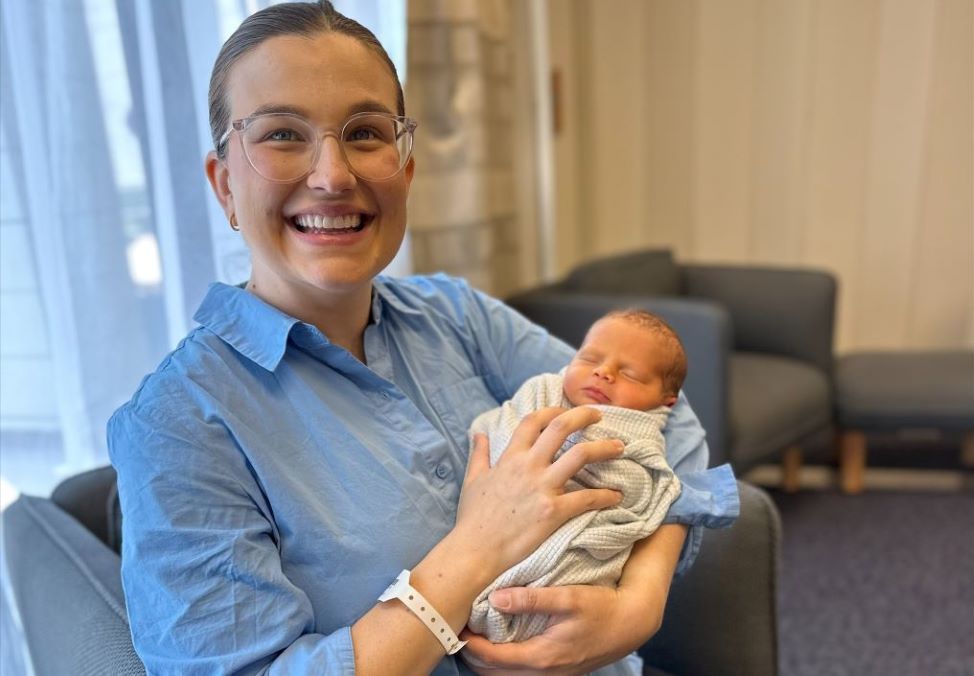Meet Henry, Australia’s first uterus transplant baby
Baby Henry Bryant doesn’t know it yet, but the minute he was born, he entered the history books.
He’s the first baby in Australia to be born by uterine transplant, as part of a groundbreaking research trial at the Royal Hospital for Women.
Henry arrived safely by caesarean section on December 15th 2023, weighing a healthy 2.9kg.
The highly specialised birth was overseen by Dr Antonia Shand, Dr Sarah Lyons and midwives from the hospital’s Maternal Fetal Medicine department.
“He arrived with a healthy cry and totally oblivious to the fact he’s entered the history books,” said Associate Professor Rebecca Deans from the Royal and UNSW Sydney, who performed the transplant on Henry’s mother, Kirsty, 30.
“This trial is the culmination of 25 years of collaborative research and persistence on a global scale so to be able to see a baby born here in Australia is incredible.”
On the 10th of January 2023, Kirsty’s mother Michelle, 53, donated her uterus so Kirsty could carry another child.
Following fertility treatment at the Royal, Kirsty fell pregnant just three months later.
“It’s been a whirlwind year and to have Henry here safely is beyond anything I thought possible,” Kirsty said.
“I’m so grateful to all the medical team who helped get us here and for being given the opportunity to be a part of this research trial.”
Kirsty had an emergency hysterectomy in 2021 after suffering a major haemorrhage following the birth of her first child Violet.
After the hysterectomy, Kirsty wanted another child, and describes Henry’s birth as “a dream come true”.
Kirsty’s transplant was supervised by Swedish surgeon Professor Mats Brännström who performed the world’s first successful uterus transplant leading to a live birth. Professor Brännström returned to Sydney for Henry’s birth.
“This gives hope to other women with uterine factor infertility that they can carry a child of their own without the need for other options such as adoption and surrogacy,” he said.
The Royal has approval to conduct six uterine transplants as part of the clinical trial, which is being led by Associate Professor Deans and other researchers from UNSW and The Royal. A second woman in the trial is now pregnant.
